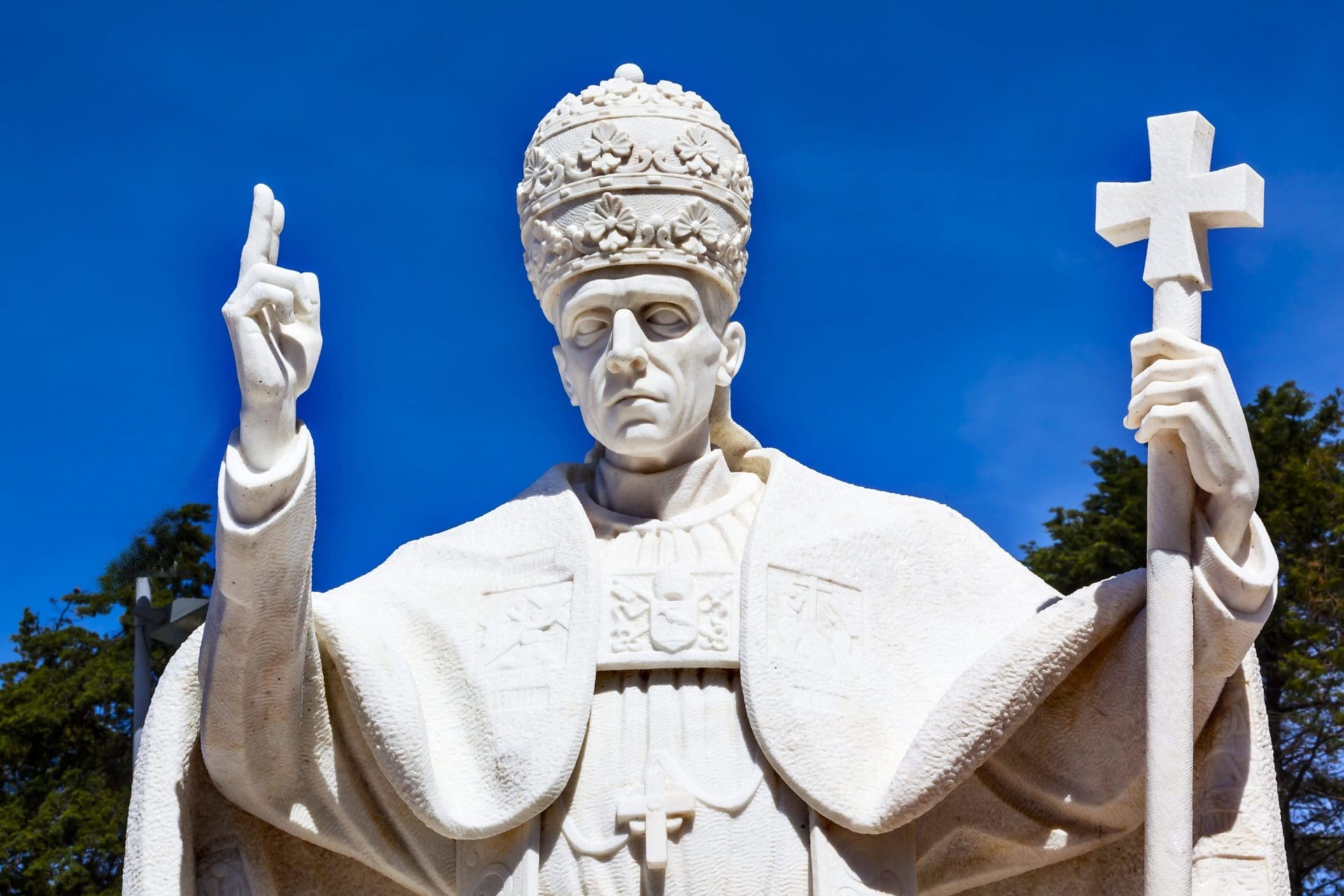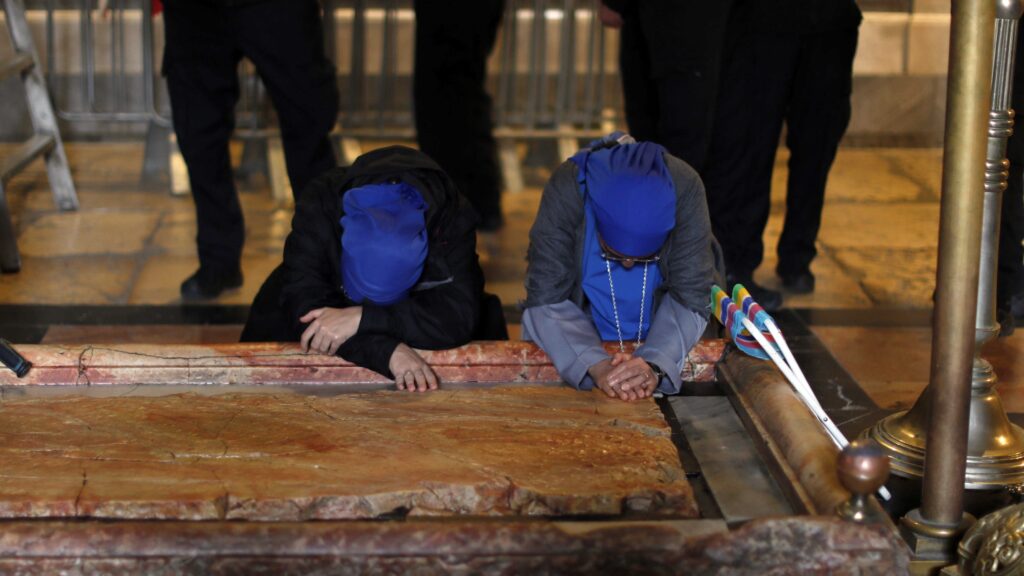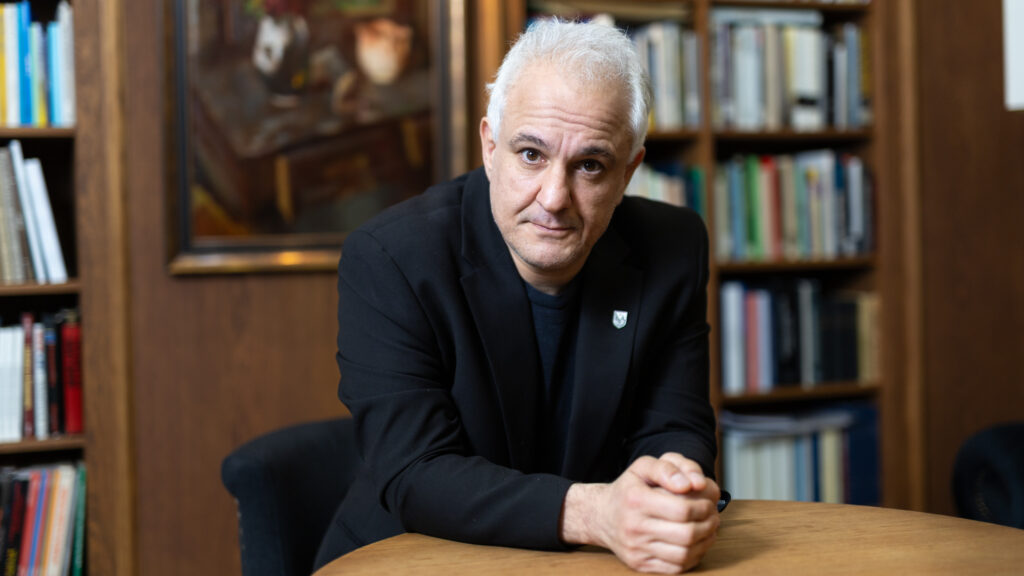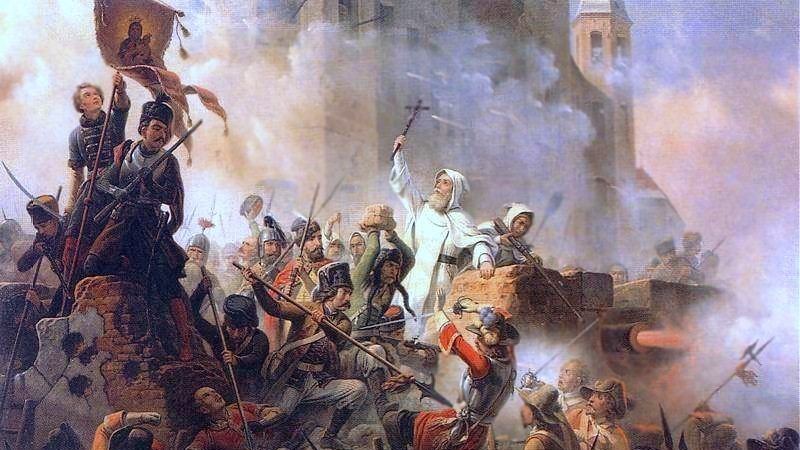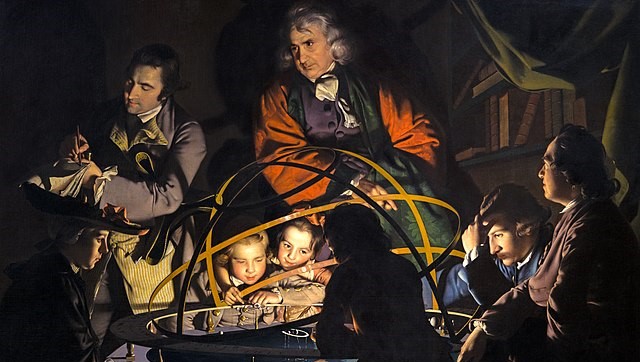What approach should Christians take to modern politics? What are their obligations in contemporary public life? Which Christian values should be endorsed in modern democracy and which political instruments may be used to further those values? Several Christian philosophers, theologians, and politicians have in the past sought to provide answers to these crucial questions. Our series of articles seeks to rekindle interest in those authors, firstly because we believe that they receive less attention than they deserve, and without forgetting the extensive academic literature on them (since most of them attract serious scholarly interest) we argue that their ideas are underrepresented in public discourse. Secondly, we believe that to answer the questions raised above, one should be able to study acknowledged theologians and philosophers who are well-versed in the wisdom of the Christian faith and base their political arguments on it. Consequently, the political insights of modern theologians will be presented with a special focus on the Christian origins and sources of their ideas. We hope that these articles will increase public interest in these inspiring figures.
Our article series has already elaborated on several Christian authors, both Catholic and Protestant, including Abraham Kuyper, Reinhold Niebuhr, Joseph Ratzinger, Johann Baptist Metz, Ernst-Wolfgang Böckenförde, Helmut Richard Niebuhr, Walter Rauschenbusch, Paul Tillich, John C. Bennett, Erik Peterson, and Pope Leo XIII.
Just as it does today, in 1939, the head of the Catholic Church represented the elemental power of peace in all its radical exclusivity
Even while the Second World War was raging, the inhumane horrors it engendered, and the unbearable experience of totalitarian regimes which oppressed whole peoples and annihilated millions, were already awakening a strong desire for a better and more peaceful world. Tragically, that same desire for peace is being reawakened today in a part of Europe where, after the events of the 20th century, many were convinced that it was no longer possible to wage armed warfare. Just as it does today, in 1939, the head of the Catholic Church represented the elemental power of peace in all its radical exclusivity. Just days before the outbreak of war, Pope Pius XII was still pleading with state leaders: ‘The danger is imminent, but there is still time … nothing is lost with peace. With war, everything is lost. Truth advances by way of reason, not through the power of weapons. It is with the strength of reason, not the strength of weapons that justice will prevail. And empires not founded by God are not blessed by God.’[i]
It is a tragedy of history that the words of Pius XII crying out for peace were received by world leaders with the same indifference as are the messages of Pope Francis, who in his 2020 encyclical Fratelli Tutti proclaimed ‘never again war!’.[ii] In the twelfth and final part of the Theologians on Modern Politics series, we would like to highlight the details of Pope Pius XII’s political thinking. The desire for peace led Pope Pius XII to ‘baptise’ democracy.[iii] Today, when the naturalness of peace in Europe is once again being called into question, it is worth recalling Pope Pius XII’s thoughts on democracy.
The thinking of Pope Pius XII plays a significant role in the history of the Catholic Church’s conception of democracy. However, after the Second World War, he became most known to the general public by the epithet ‘Hitler’s pope’. However, Johan Ickx, author of one of a recent volume entitled The Bureau: Pius XII and the Nazis, Revelation from the Vatican Archives, shows how the absurd propaganda claiming that Pius XII was sympathetic to the Nazis is based on Rolf Hochhuth’s 1963 play The Deputy, which was commissioned and funded by the Soviet secret service.[iv] Ickx, a Belgian church historian, points not only to the Soviet secret service operation but also, on the basis of 2,800 Jewish letters requesting aid, to the fact that Pius XII personally helped the persecuted and supported the extensive Vatican rescue network. The root cause behind the Soviet attempt at character assassination was undoubtedly Pope Pius XII’s steadfast opposition to communism.
The Hungarians, in particular were able to experience the anti-communism of Pope Pius XII. The pope’s relations with Hungary date back to the 1938 International Eucharistic Congress, when, as cardinal state secretary to the Vatican, he was sent as Papal envoy by his predecessor, Pope Pius XI. He later testified: ‘I am glad that the Hungarian people, whom I came to love at the World Congress of the Eucharist in 1938, and placed in my heart for their attractive religiosity, today still cling to their faith in the shadow of the cross.’[v] His writings always bore witness to his loving affinity for the Hungarians. Cardinal József Mindszenty sent the letters of Pius XII to the Catholic bishops of Hungary after Mindszenty’s imprisonment in 1948. In addition to condemning communism, he steadfastly encouraged Hungarian Catholics to persevere in their faith in spite of all ordeals. After the Hungarian Revolution in 1956, he called upon all the Christians in the world to pray for them in his encyclical Luctouissimi Eventus.
Pius XII took the view that the church does not prohibit moderate democratic systems
In this short essay, we will focus not on an encyclical but on his radio speech of Christmas 1944, in which the pope reflected on the future of democracy. Pius XII, in line with the teachings of Pope Leo XIII, which we have also discussed, took the view that the church does not prohibit moderate democratic systems. The pope drew attention to the form in which democracy should be realised so that it can truly be a pledge of peace. To this, he raised two questions: ‘What characteristics should distinguish the men who live under democracy and a democratic regime?’; and ‘what characterisation should distinguish the men who hold the reins of government in a democracy?’[vi] Pius XII’s intention was to define ‘true and sober’ democracy.
Today, accustomed as we are to talk about any number of subtypes of democracy, from ‘illiberal’ to ‘liberal’ through ‘deliberative’, the words of the pope are especially worthy of our consideration:
When, however, people call for ‘more democracy and better democracy’, such a demand cannot have any other meaning than to place the citizen ever more in the position to hold his own personal opinion, to express it and to make it prevail in a fashion conducive to the common good.[vii]
How is all this possible? The pope distinguishes between ‘the people’ and ‘the masses’ and, on this basis, seeks to describe a responsible basis for democracy. He describes ‘the people’ as those whose members are ‘persons aware of their own responsibilities and beliefs’. Among the people, therefore, the citizen has self-awareness, and ‘the citizen feels within him the consciousness of his personality, of his duties and rights, of his own freedom joined to respect for the freedom and dignity of others.’[viii] Conceived in this way, it is the people who live, this life flows into the state as well, and the sense of individual responsibility and commitment to the public good also affects particular organs of the state.
‘The masse’, by contrast, are defined by Pius XII as ‘the capital enemy of true democracy and of its ideal of liberty and equality’.[ix] Thus, the term ‘the masses’ does not denote a quantity but rather a quality. The masses are not in control of themselves but can be controlled from the outside. Therefore, a state relying on the masses becomes mechanised, and the ideal freedom of a true democracy can easily turn into tyranny. The historian András Fejérdy explains why Pius XII emphasised that the ‘people’ and not the ‘masses’ should be the basis of a ‘true’ democracy. In his view, only a people with a sense of responsibility can restrict the state from the bottom up so that democracy can become a form of state in which citizens have the opportunity to prevent ‘state absolutism and the development of a modern totalitarian approach.’[x]
It is important that Pius XII, in addition to believing in constraints on the state from below, also held that limitations should derive from ‘superior authority,’ which is ‘the absolute order of things and purposes’. Pius put it as follows:
And since that absolute order, in the light of right reason, and in particular of the Christian Faith, cannot have any other origin than in a personal God, our Creator, it follows that the dignity of man is the dignity of the moral community willed by God, the dignity of political authority is the dignity deriving from its sharing in the authority of God.[xi]
Democracy is not bad in itself, but the conditions must be created for it to be a guarantee of freedom and not an invitation to new repressive regimes
He saw true democracy as feasible only on this basis, meaning a democracy based on natural law and revealed truth, with political figures who represent the whole people. And the role of the Catholic Church is to proclaim the greatest message to peoples who desire democracy: ‘the dignity of man, the call to be sons of God’.Pius XII, like his predecessors, sought a non-political definition of democracy. He recognised, among people seeking to escape the horrors of war, the desire for freedom, for the attainment of which democracy can be a tool. However, he also recognised what contemporary critics of the birth of democracy among the ancient Greeks had already noted: Democracy is often merely the rule of the loudest, who subjugate the masses. That is why Pius XII considered it so important to emphasise that democracy can only be founded among a self-conscious, responsible people committed to the common good. Democracy is not bad in itself, but the conditions must be created for it to be a guarantee of freedom and not an invitation to new repressive regimes. The teachings of Pius XII are therefore not only valid in the shadow of war: in order to preserve the achievements of democracy in the 21st century, we must be able to become responsible citizens and, as a people, a real constraint on oppression.
Translated by Thomas Sneddon
[i] Pope Pius XII: Radiomessagio Rivolto Ai Governanti ed Ai Popoli Nell’imminente Pericolo Della Guerra (Radio Message Addressed to Rulers and Peoples in the Imminent Danger of War). 24 Aug 1939, https://www.vatican.va/content/pius-xii/it/speeches/1939/documents/hf_p-xii_spe_19390824_ora-grave.html
[ii] Pope Francis: Fratelli tutti, 3. Oct 2020, 258. https://www.vatican.va/content/francesco/en/encyclicals/documents/papa-francesco_20201003_enciclica-fratelli-tutti.html
[iii] French historian Jean-Dominique Durrand called Pope Pius XII’s 1944 Christmas radio speech ’the baptism of democracy.’ In: Fejérdy, András: Opus Iustitiae Pax. XII. Piusz pápa társadalmi tanítása. Kommentár 2007/5 35-48.
[iv] Johan Ickx: The Bureau: Pius XII and the Nazis, Revelation from the Vatican Archives Ch 12, Pius and the Jews. (Budapest: Európa, 2020)
[v] In: Adriányi, Gábor: A Vatikán keleti politikája és Magyarország 1939-1978, (The Eastern Policy of the Vatican and Hungary 1939-198.), (Budapest: Kairosz, 2004), 9.
[vi] Pope Pius XII: Radio Message to The People of The Entire World. 24 Dec 1944, https://www.vatican.va/content/pius-xii/en/speeches/1944/documents/hf_p-xii_spe_19441224_natale.html
[vii] Pope Pius XII: Radio Message to The People of The Entire World.
[viii] Pope Pius XII: Radio Message to The People of The Entire World.
[ix] Pope Pius XII: Radio Message to The People of The Entire World.
[x] Fejérdy: Opus Iustitae Pax, 40.
[xi] Pope Pius XII: Radio Message to The People of The Entire World.

